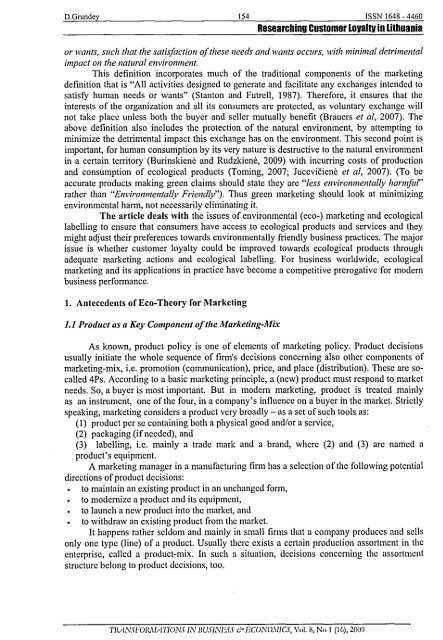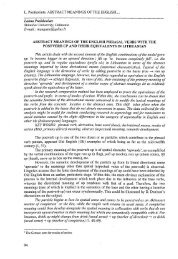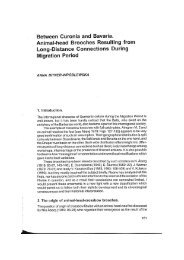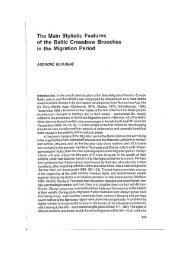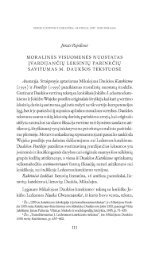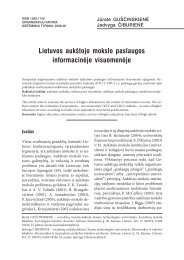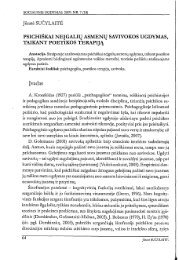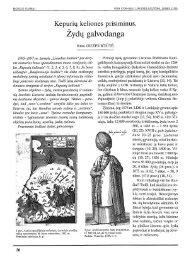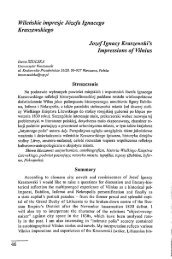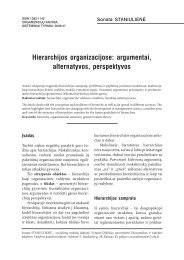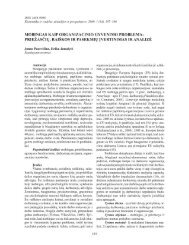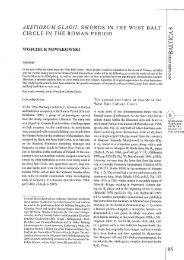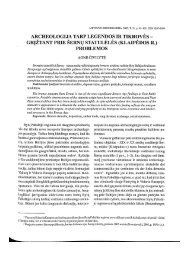ECO-MARKETING AND ECO-LABELLING: DOES IT ENSURE ...
ECO-MARKETING AND ECO-LABELLING: DOES IT ENSURE ...
ECO-MARKETING AND ECO-LABELLING: DOES IT ENSURE ...
You also want an ePaper? Increase the reach of your titles
YUMPU automatically turns print PDFs into web optimized ePapers that Google loves.
D.Grundey 154 ISSN 1648 - 4460<br />
Researching Customer Loyalty In Lithuania<br />
or wants, such that the satisfaction of these needs and wants occurs, with minimal detrimental<br />
impact on the natural environment.<br />
This definition incorporates much of the traditional components of the marketing<br />
definition that is "All activities designed to generate and facilitate any exchanges intended to<br />
satisfy human needs or wants" (Stanton and Futrell, 1987). Therefore, it ensures that the<br />
interests of the organization and all its consumers are protected, as voluntary exchange will<br />
not take place unless both the buyer and seller mutually benefit (Brauers et al, 2007). The<br />
above definition also includes the protection of the natural environment, by attempting to<br />
minimize the detrimental impact this exchange has on the environment. This second point is<br />
important, for human consumption by its very nature is destructive to the natural environment<br />
in a certain territory (Burinskienė and Rudzkienė, 2009) with incurring costs of production<br />
and consumption of ecological products (Toming, 2007; Jucevičienė et al, 2007). (To be<br />
accurate products making green claims should state they are "less environmentally harmful'<br />
rather than "Environmentally Friendly"). Thus green marketing should look at minimizing<br />
environmental harm, not necessarily eliminating it.<br />
The article deals with the issues of environmental (eco-) marketing and ecological<br />
labelling to ensure that consumers have access to ecological products and services and they<br />
might adjust their preferences towards environmentally friendly business practices. The major<br />
issue is whether customer loyalty could be improved towards ecological products through<br />
adequate marketing actions and ecological labelling. For business worldwide, ecological<br />
marketing and its applications in practice have become a competitive prerogative for modem<br />
business performance.<br />
1. Antecedents of Eco-Theory for IVlarketing<br />
/./ Product as a Key Component of the Marketing-Mix<br />
As known, product policy is one of elements of marketing policy. Product decisions<br />
usually initiate the whole sequence of firm's decisions concerning also other components of<br />
marketing-mix, i.e. promotion (communication), price, and place (distribution). These are socalled<br />
4Ps. According to a basic marketing principle, a (new) product must respond to market<br />
needs. So, a buyer is most important. But in modem marketing, product is treated mainly<br />
as an instmment, one of the four, in a company's influence on a buyer in the market. Strictly<br />
speaking, markeUng considers a product very broadly - as a set of such tools as:<br />
(1) product per se containing both a physical good and/or a service,<br />
(2) packaging (if needed), and<br />
(3) labelling, i.e. mainly a trade mark and a brand, where (2) and (3) arc named a<br />
product's equipment.<br />
A marketing manager in a manufacturing firm has a selection of the following potential<br />
directions of product decisions:<br />
• to maintain an existing product in an unchanged form,<br />
. to modernize a product and its equipment,<br />
to launch a new product into the market, and<br />
to withdraw an existing product from the market.<br />
It happens rather seldom and mainly in small firms that a company produces and sells<br />
only one type (line) of a product. Usually there exists a certain production assortment in the<br />
enterprise, called a product-mix. In such a situation, decisions concerning the assortment<br />
structure belong to product decisions, too.<br />
TiL'XNSl-omATlON.'i IN mUNt-XS č'nCONOMia, Vol. 8, No 1 (16), 2009


